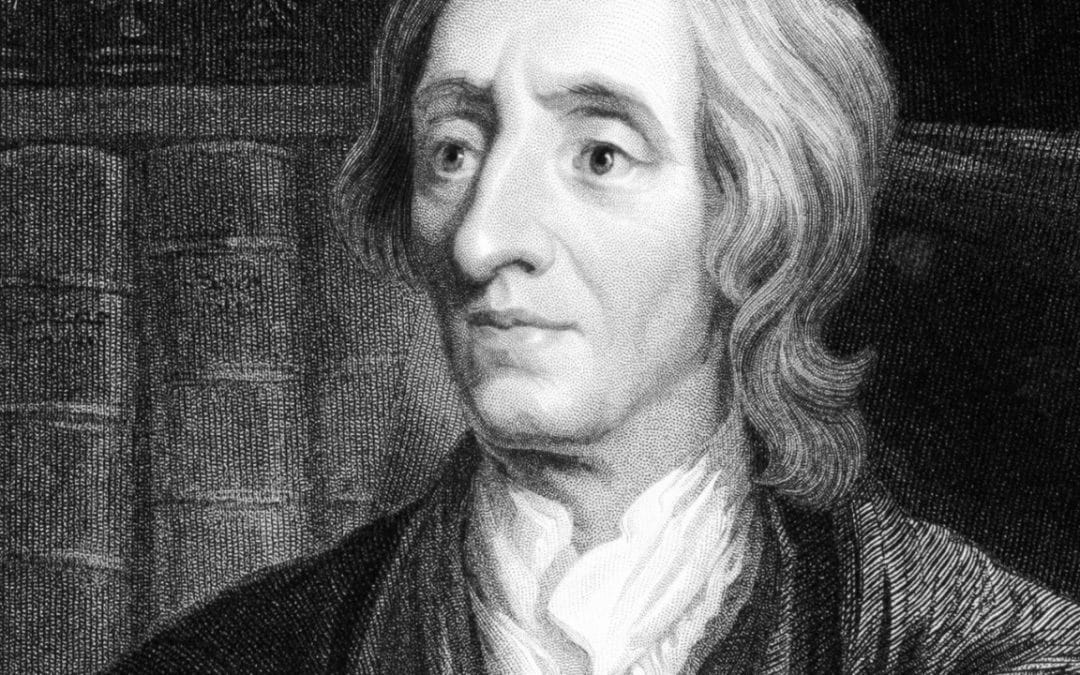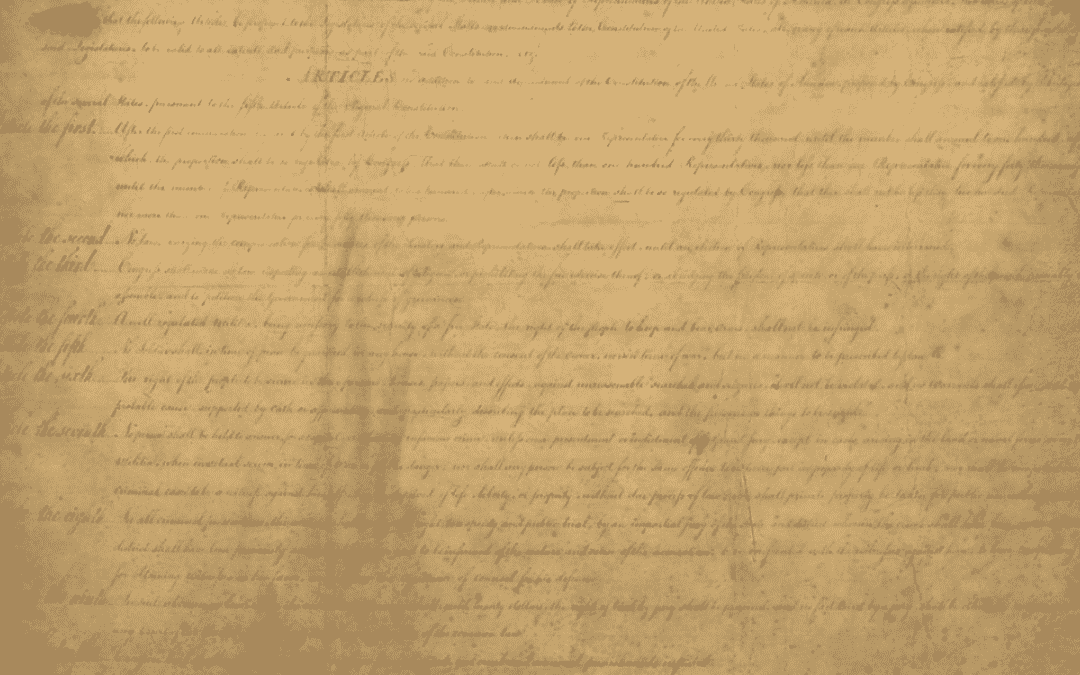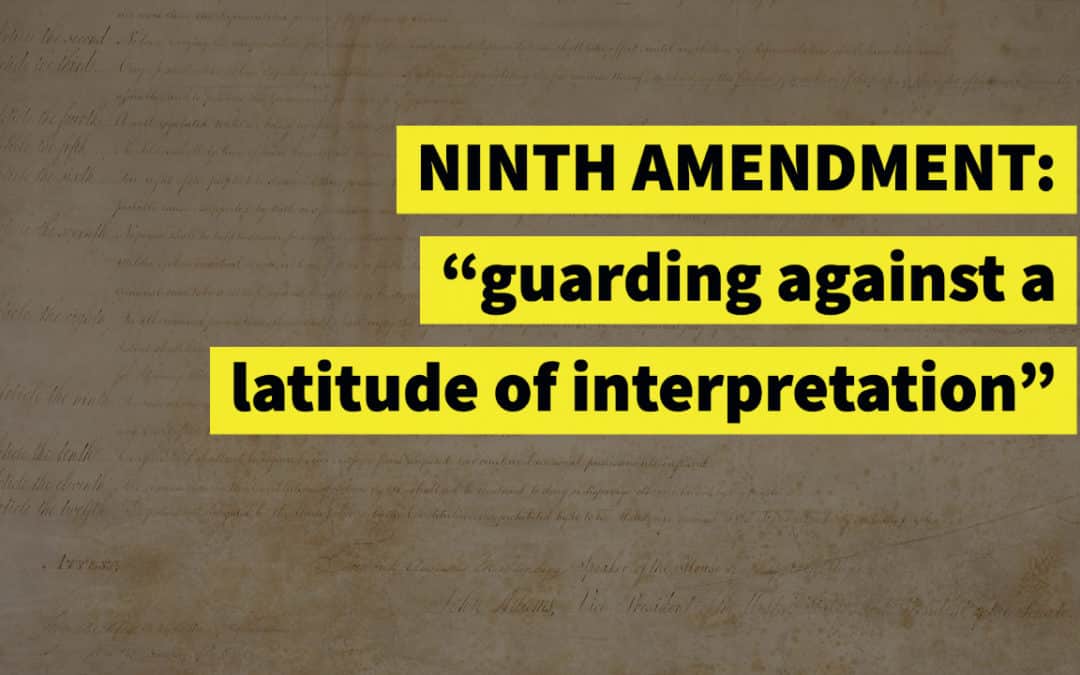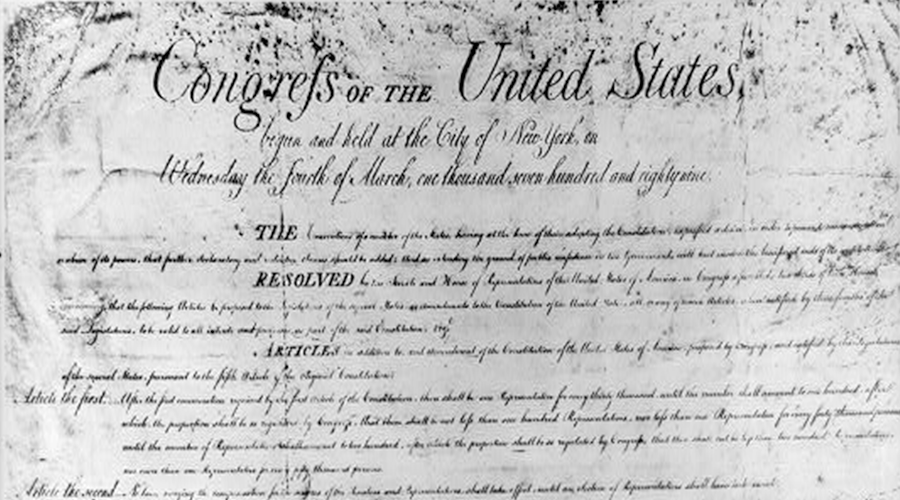
9th Amendment


The ideas that formed the Constitution: John Locke and the Ninth Amendment
John Locke (1632–1704) was one of the greatest figures in English scholarship. His influence on the American Founding was enormous. Some have referred to him as a “Founding Grandfather.” Locke shared points of similarity with many other figures profiled in this...
What’s the Point of the Ninth Amendment?
You will often hear people claim that the Ninth Amendment “gives us all of the rights that aren’t listed in the Bill of Rights.” But that is not the correct way to read the amendment. The Ninth Amendment reads: “The enumeration in the...
The Ninth Amendment and the Right of Local Self-Government
Excerpted from a brief of Prof. Lash as Amicus Curiae in support of petitioners in Dobbs v Jackson Women’s Health Organization The Ninth Amendment guarantees the right of local self-government in all matters not expressly prohibited to the states or clearly...
The Ninth and Tenth Amendments: Keystones of Liberty
The founding generation created a political system that carefully divided powers and that was designed to ensure the general government remained limited in its scope and power. That system has all but vanished, but two oft-ignored and misunderstood provisions in the...
